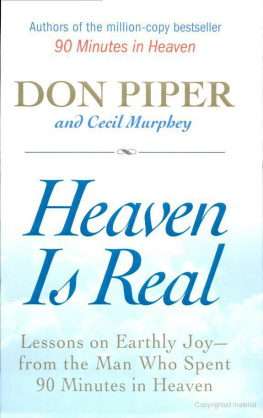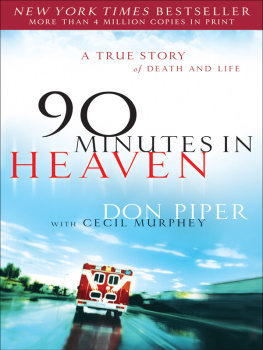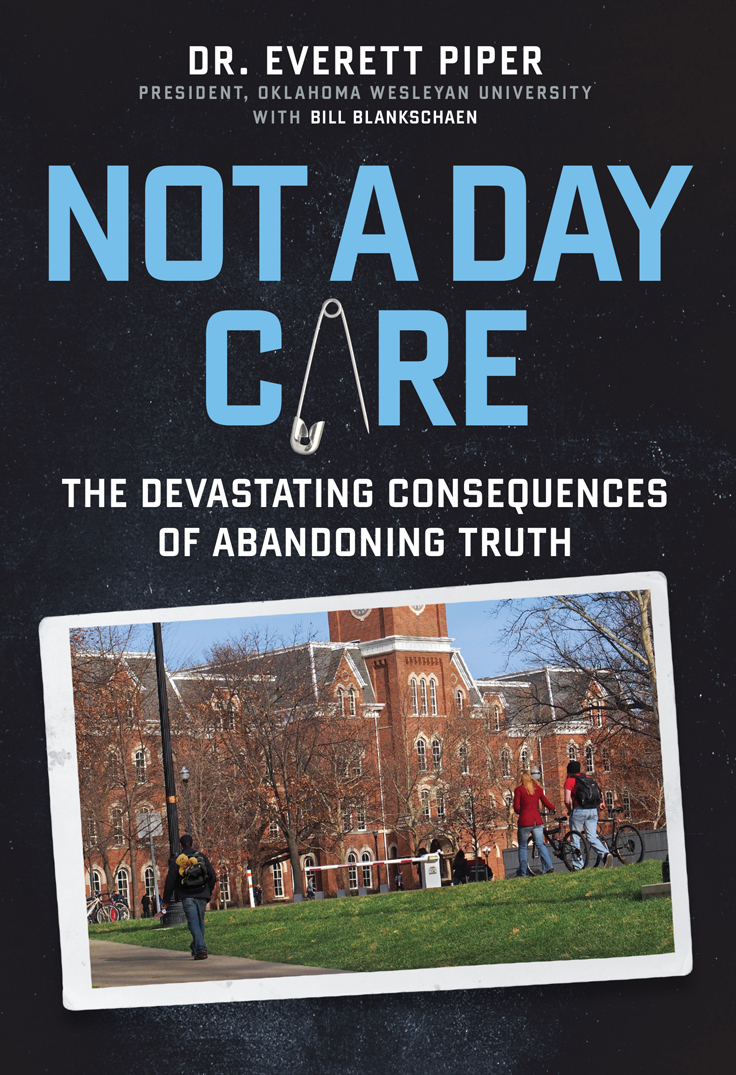Table of Contents
Guide

S pecial thanks are due to many who have stood shoulder to shoulder with me in the fight for academic freedom and intellectual liberty. Key mentors as well as trusted partners are always as important as the point man himself when fighting the good fight for what is right and just and true. I am grateful for those who have helped me find clarity when I needed it, precision where I lacked it, and conviction where I avoided it.
In this context, I am humbled by the complementary nature of the broader body of Christ. Some obviously have clearer eyes and keener ears to see what needs to be seen and to hear what needs to be heard a bit sooner than the rest of us. While there are many godly men and women whom I should thank and affirm, I would be remiss not to mention the following few.
Chuck Colson was a great hero of common sense and of Christian integrity. His Christian conversion and subsequent defense of the Faith and the truth that undergirds it is perhaps one of Gods greatest gifts to our country and to the Church in the past fifty years. Dr. Colson truly modeled what it meant to be born again and to thereby be salt and light to a dying culture and an increasingly dark and hurting world.
Dr. Jim Garlow continues to be a great friend and courageous confidant. I know of few who I would trust more to stand shoulder to shoulder with me in the battle for ideas and the defense of truth. He is one of the most articulate spokesmen I know for the cause of Christ.
I am forever grateful for the privilege of studying under the likes of Os Guinness, John Lennox, and the other professors at the Oxford Center for Christian Apologetics. What a gift to be able to learn from their teaching and be inspired by their leadership.
I am honored and humbled by the inexplicable loyalty and support of Josh McDowell. Josh is the poster child of what it means to be a brother in Christ. If you Google the words true friend the first thing that you will see pop up on your screen is a picture of Josh McDowell.
Governor Frank Keating is another exemplary leader who has blessed me with his confidence, inspired me with his courage, and emboldened me with his praise.
Audrea Taylor contributed greatly to this book. She stitched together many speeches, radio commentaries, editorials, and opinion pieces, to create broader, more cohesive arguments.
Rick Borman has likewise provided untold hours of counsel and insight in navigating the waters of public relations, publications, radio, TV, and the Internet. Without Rick, I am not sure how we would have weathered the Not a Day Care storm without drowning in its flood.
Roger Metcalf, Steve Babby, Don Walker, Trevor Shakiba, Kevin Freeman, Marla Roseland, Gale Kane, and the rest of the Oklahoma Board of Trustees deserve a special note of thanks for graciously granting me the time to engage in the extracurricular activities necessary to complete this book.
Bill Blankschaen deserves a special note of thanks for his role as co-writer. His assistance in research, writing, and editing all proved incredibly valuable. He and I both know the end product would not have been as solid without his partnership.
Finally, there is no one in the list above who even comes close to holding a candle to my wife, Marci. She is the most faithful follower of Christ I know. Every day Marci models for my two sons and for me what conviction, courage, forgiveness, and faithfulness really means. My family is blessed beyond words to have her as its matriarch.
T RIGGER WARNING! If you are a university administrator, faculty member, or a millennial snowflake on most college campuses today, what you are about to read may alarm, disturb, and offend you:
Love is patient, love is kind. It does not envy, it does not boast, it is not proud. It does not dishonor others, it is not self-seeking, it is not easily angered, it keeps no record of wrongs. Love does not delight in evil but rejoices with the truth. It always protects, always trusts, always hopes, always perseveres.
If you read that quintessential love passage from 1 Corinthians and failed to see a problem, youre not alone. I share your confusion. This story hearkens back to Thanksgiving week 2015. I was going about my daily business as president of Oklahoma Wesleyan University (OKWU) when one of my vice presidents called me: Dr. Piper, I wanted to give you a heads up. One of our students confronted me after I spoke in the chapel service this morning. He told me I should have had a trigger warning prior to my sermon because it offended him and made him feel uncomfortable. He claimed I singled him out and, likewise, his peers. They felt unsafe by my egregious microaggression. What I said in my homily victimized him.
Bewildered, I asked to review the text of my vice presidents sermon, knowing that he always spoke from prepared notes and seldom ventured from them. By the way, I asked, what was the topic of your talk? His response blew me away: It was a sermon from 1 Corinthians 13on love!
Youve likely heard 1 Corinthians 13 read at numerous weddings, perhaps even your own. After receiving the sermon text, I carefully read it to be sure I wasnt missing something. I found no sarcasm and absolutely zero political content. There wasnt even an attempt at humor that might have been misconstrued as offensive or insensitive. It was a clear call to Christian charity, nothing more and nothing less.
Having worked in academia my entire career, very little that happens on college campuses surprises me. But I was simply amazed that I was being confronted with this absurdity at a private, conservative Christian university that still boldly and unapologetically celebrates an educational paradigm solidly grounded in a biblical worldview. No one visiting our campus could miss our distinctly Christian mission and message. We proudly boast of the primacy of Christ, the priority of Scripture, the pursuit of truth, and the practice of wisdom. Our university motto reads, Impacting Culture with the Lordship of Jesus Christ. We require chapel attendance twice a week and hold our students accountable to honor traditional morality and live lives of integrity and personal chastity. We boldly state who we are to every prospective student and parent and are crystal clear about what is expected of all members of our community.
Nevertheless, we had a student complaining that a sermon on love made him feel uncomfortable for being unloving! I responded with an open letter posted on our university website. Here is what it said:
This past week, I actually had a student come forward after a university chapel service and complain because he felt victimized by a sermon on the topic of 1 Corinthians 13. It appears this young scholar felt offended because a homily on love made him feel bad for not showing love. In his mind, the speaker was wrong for making him and his peers feel uncomfortable.
Im not making this up. Our culture has actually taught students to be this self-absorbed and narcissistic. Any time their feelings are hurt, they are the victims. Anyone who dares to challenge them and, thus, makes them feel bad about themselves, is a hater, a bigot, an oppressor, and a victimizer.
Well, I have a message for this young man and all others who care to listen. That feeling of discomfort you have after listening to a sermon is called a conscience. An altar call is supposed to make you feel bad. It is supposed to make you feel guilty. The goal of many a good sermon is to get you to confess your sinsnot coddle you in your selfishness. The primary objective of the Church and the Christian faith is your confession, not your self-actualization.
Next page





